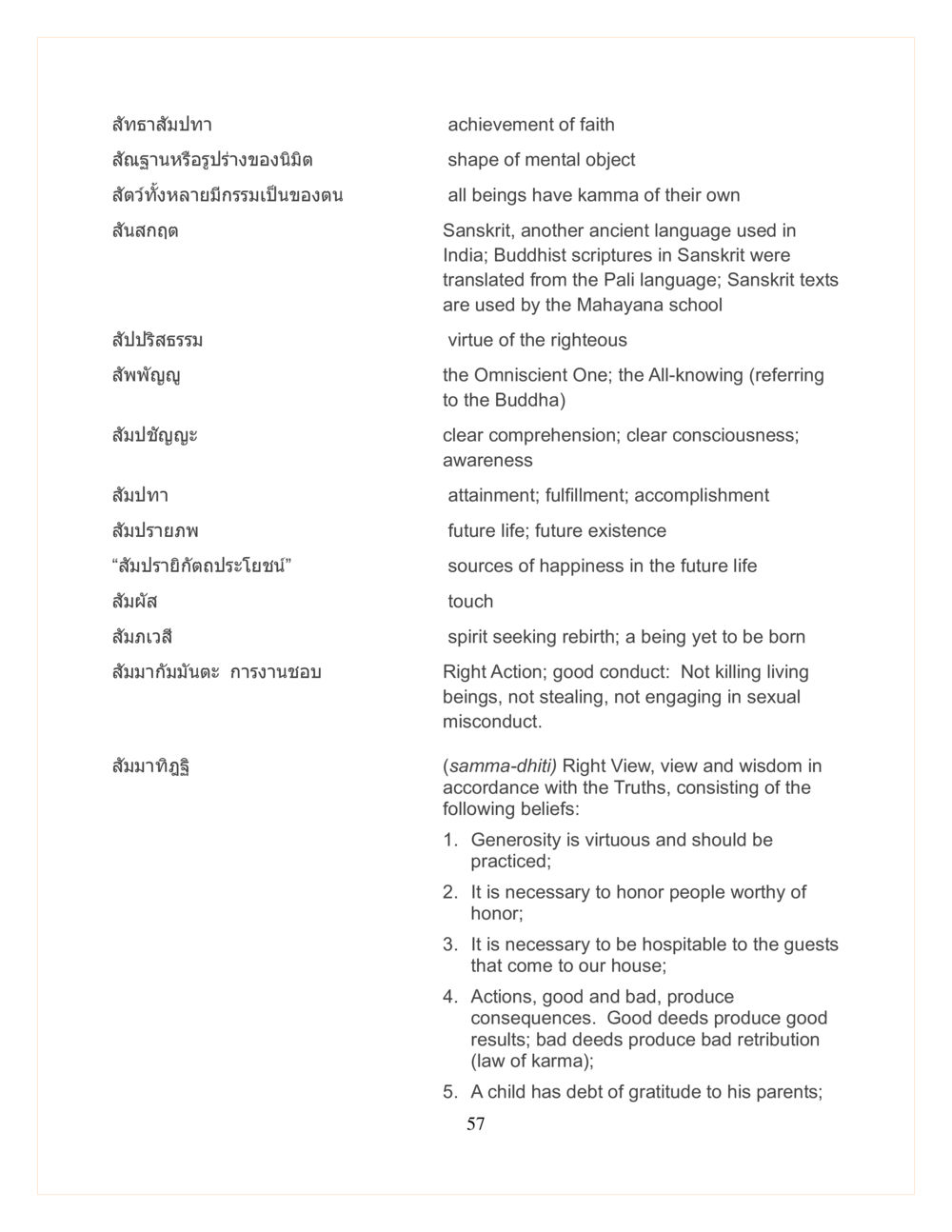Understanding Key Buddhist Concepts : หน้า 57/115
DMC Translor’s handbook : หน้า 57/115 A comprehensive exploration of fundamental Buddhist concepts such as faith, mental objects, karma, and right actions.
0 ครั้ง

สรุปเนื้อหา
This text provides important insights into various Buddhist concepts including the achievement of faith (စัทธ Sambhā), the nature of mental objects, the principle that all beings possess their own karma, and the significance of virtues like righteousness. It also highlights the importance of right actions and views in accordance with Buddhist teachings, emphasizing the consequences of actions through the law of karma. Understanding these principles is essential for those delving into Buddhist philosophy and for achieving spiritual growth in this life and future existences. The teachings encourage generosity, respect for others, and the practice of moral conduct.
หัวข้อประเด็น
-Buddhist Philosophy
-Faith and Belief
-Karma and Moral Conduct
-Rights and Virtues
-Sanskrit and Pali Languages
-Implications of Actions



















































































































